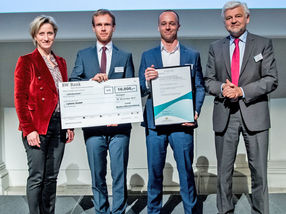European Medicines Agency reveals new structure
An agency reshaped for the future
The European Medicines Agency (EMA) has announced details of its new organisational structure. The changes fundamentally reorganise the Agency’s operations to support better its public and animal health mission, and its role as part of the European medicines regulatory system. The new structure reflects a renewed focus on three key elements:
- How to better support the scientific work of the of the EMA committees;
- How to better share the knowledge and information the Agency holds throughout the EU medicines regulatory network;
- How to better meet the need of the Agency’s stakeholders and partners.
“The changes announced today will reshape the EMA so that it is ready to handle future challenges and seize opportunities,” said Professor Guido Rasi, EMA Executive Director. “My aim is to give our scientific committees the best possible support, alongside the expertise from the national agencies, to help them keep delivering high-quality, consistent opinions. These changes will enable us to use our resources more efficiently and effectively and ensures that the Agency is better prepared for future legislative and policy challenges.”
The changes announced today are the beginning of a transition period as the Agency revises its operating processes, expected to be completed in 2014. While work continues to further refine the organisational structure, the Agency will ensure continuity of operations. This means that applicants, marketing authorisation holders and other stakeholders should continue to work with their current EMA liaison staff and product team leaders unless informed otherwise.
The new structure has at its core four new Divisions with responsibilities right through the lifecycle of a medicine for human use from development to use in patients. Those are:
- Human Medicines Research and Development Support Division,
- Human Medicines Evaluation Division,
- Procedure Management and Business Support Division,
- Inspections and Human Medicines Pharmacovigilance Division.
The reorganisation introduces a new operating model for how medicines are managed through their entire lifecycle at the Agency, with separation of the scientific and procedure management. With the increasing number and complexity of applications being handled by the Agency’s committees, this is intended to reinforce the robustness and quality of the Agency’s output and allow development of greater specialities able to respond and support the work of the committees.
Veterinary medicines are managed through a single Division that has been re-focused to deal solely with veterinary medicines and animal health. Information technology and administration continue to be managed through separate Divisions.
A new Division for Stakeholders and Communication is created to provide improved coordination of the Agency’s relations with stakeholders, in particular patients and healthcare professionals, support for small and medium-sized enterprises, and a dedicated communication service.
The new organisational structure is underpinned by advisory functions, which provide advice to the Executive Director and the Agency on operational and scientific issues in their fields of expertise. In addition to the existing functions of Senior Medical Officer, International Affairs, Audit and the Legal Department, this also includes the newly created roles of Chief Policy Adviser and Head of Programme Design Board.
Most read news
Other news from the department politics & laws

Get the life science industry in your inbox
From now on, don't miss a thing: Our newsletter for biotechnology, pharma and life sciences brings you up to date every Tuesday and Thursday. The latest industry news, product highlights and innovations - compact and easy to understand in your inbox. Researched by us so you don't have to.


















































